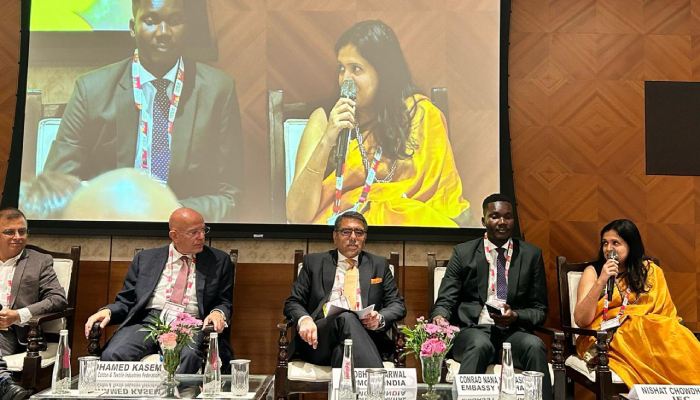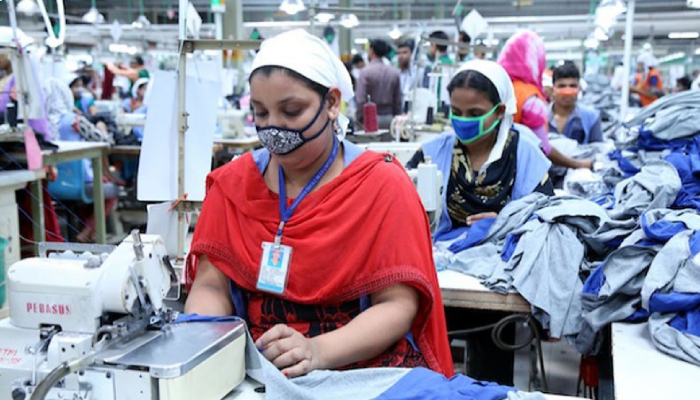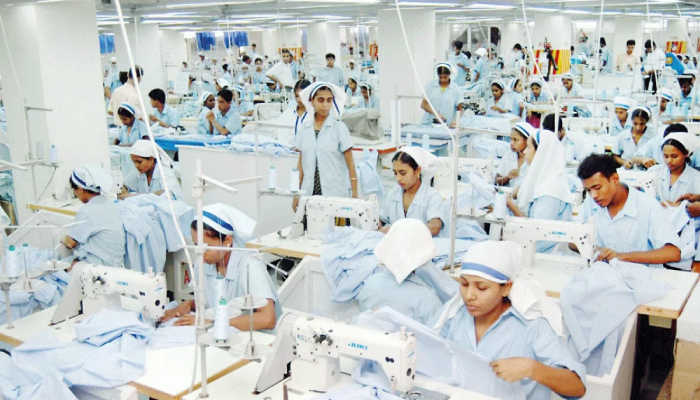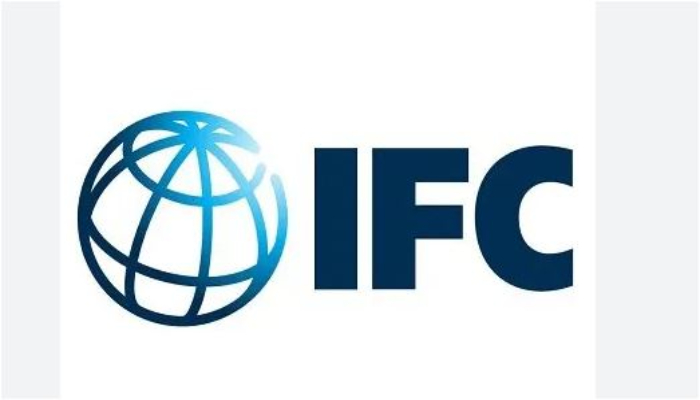Wednesday, August 3, 2022
Stakeholders on Wednesday identified issues such as necessity of a long-term sustainability plan, easier and greater access to finance, removing knowledge gap that prohibits smaller manufacturers to get financing as current challenges in enhancing the readymade garment sector’s sustainability during the post-Covid recovery stage, said a press release.
The issues were brought up in a dialogue on enhancing environmental sustainability of Bangladesh’s RMG sector organised by the Policy Research Institute and the International Finance Corporation in Dhaka on Wednesday.
Government officials, representatives from global apparel brands and industries and other stakeholders participated in the event.
The RMG sector contributes one-fifth of the Bangladesh’s gross domestic product and more than 80 per cent of its export earnings. It also employs more than 4.5 million people, mostly women.
However, the sector is also the biggest industrial contributor to Bangladesh’s carbon footprint.
Miran Ali, vice-president of the Bangladesh Garment Manufacturers and Exporters Association, said, ‘The garments sector has come a long way since the establishment of IFC’s Partnership for Cleaner Textile (PaCT), which showed the industry a new path of competitive advantage by being responsible and making cost-effective and financially feasible changes in operation that reduce emissions.’
He emphasised the importance of having a business case around sustainable solutions such as rooftop solar and rainwater harvesting in the sector.
In 2015, IFC’s PaCT launched a national-level dialogue programme to address resource use efficiency and environmental sustainability of the RMG sector in Bangladesh, under which several regulatory reforms were enacted.
Ahsan Mansur, executive director of the Policy Research Institute, was the keynote speaker at the event.
In his presentation, he focused on the potential for rooftop solar power, reducing input materials through greater resource efficiency, recycling and reusing waste.
Khondkar Morshed Millat, director of the sustainable finance department of the Bangladesh Bank, Md Jafar Uddin, chief executive officer of the Bangladesh Foreign Trade Institute and Golam Sarware Kainat, member (joint secretary) of the renewable energy of SREDA, were present at the event.
Other participants included representatives from Bangladesh Standards and Testing Institution, Bangladesh Export Processing Zone Authority, Bangladesh Investment Development Authority, Tariff Commission and senior officials from the embassies of Denmark and the Netherlands.
For more information, visit https://www.newagebd.net/article/177556/rmg-sector-needs-long-term-sustainability-plan-discussion
Featured News

PaCT program manager attends Bharat Tex as panelist
March 6, 2024
Number of LEED certified factories in RMG reaches 202
September 17, 2023

Spearheading sustainable industries
August 6, 2023
IFC organizes Africa-Asia Roadshow in Bangladesh
June 19, 2023

